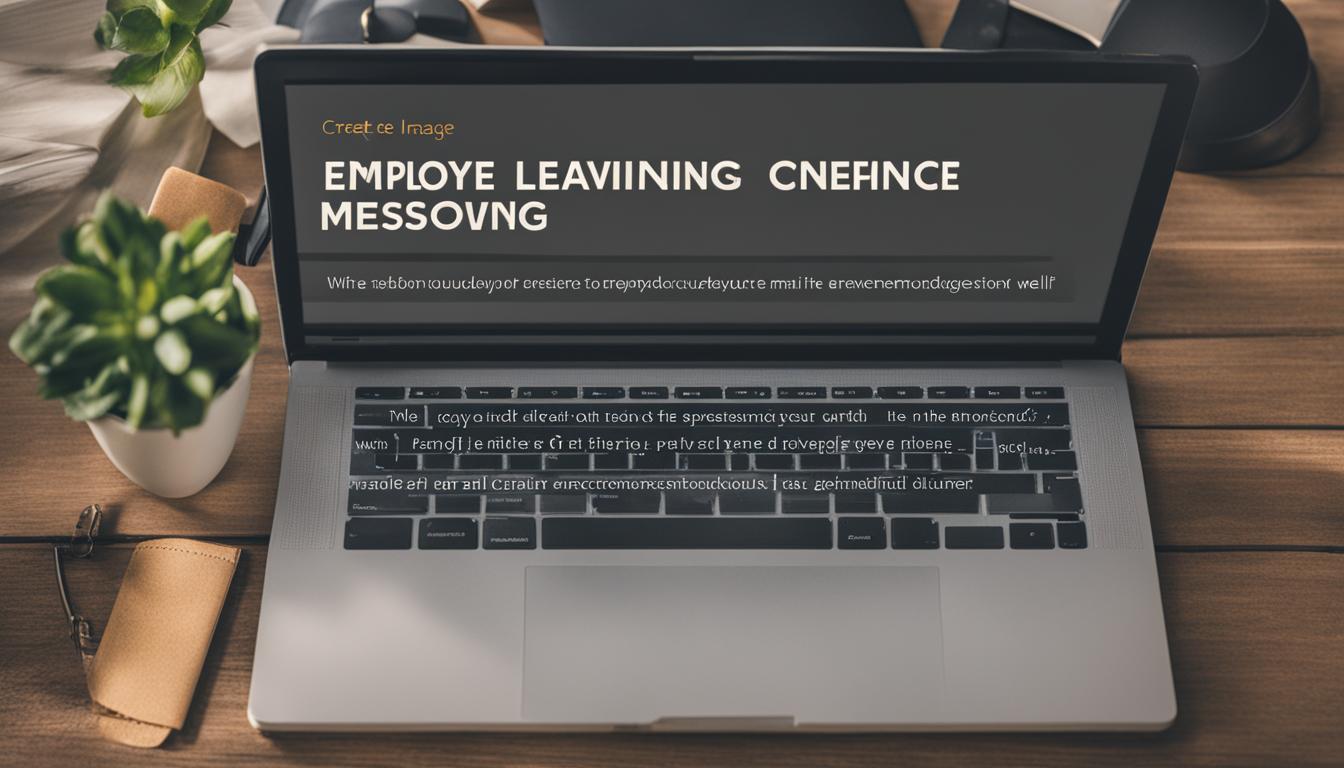We’ve all been there – staring at a blank screen, trying to compose the perfect email to a mentor. It can feel like quite the daunting task, can’t it?
The right words can make all the difference in catching a potential mentor’s attention and securing their guidance. But fear not, as we have some valuable insights and proven strategies to help you craft a compelling mentor email that will set you on the path to a fruitful mentorship.
So, are you ready to take your outreach to the next level and make a lasting impression on your prospective mentor?
Key Takeaways
- Personalization is key in mentor emails, showing a clear understanding of the potential mentor’s work and expertise.
- The tone of the first meeting is important, expressing a desire for mentorship and showcasing the value you bring as a mentee.
- Effective email templates for seeking mentorship emphasize genuine admiration for the mentor’s work, articulating career goals, and requesting a specific time for a discussion or meeting.
- When approaching potential mentors, thorough research, clear and concise requests, and highlighting the value you can offer are essential, while avoiding common mistakes such as a lack of research and self-centeredness.
Crafting the Perfect Mentor Email
Crafting the perfect mentor email requires personalized and thoughtful consideration of the potential mentor’s background and expertise. When reaching out to a potential mentor, it’s crucial to demonstrate a clear understanding of their work and how it aligns with your career goals. Utilizing a mentor email template can provide a structured approach, but personalizing the message to reflect genuine interest in the mentor’s work is essential. Researching the potential mentor beforehand allows for a tailored approach, highlighting specific connections between their expertise and your career aspirations.
In the mentorship program, the first meeting sets the tone for the relationship, making it crucial to craft an email that not only expresses your desire for mentorship but also showcases the value you bring to the table. Successful mentoring relationships are built on mutual respect and a willingness to learn. Therefore, when choosing someone to approach, it’s important to gauge your interest in their work and ensure that it aligns with your goals.
Effective Email Templates for Seeking Mentorship

Seeking mentorship through email can be a strategic and impactful way to connect with experienced professionals who can provide valuable guidance and support in your career journey. When crafting an email to seek mentorship, consider the following effective email templates:
- Express genuine admiration for the potential mentor’s work and achievements, showing that you’ve done your research and truly value their expertise.
- Clearly articulate your career goals and the specific areas in which you’re seeking guidance, demonstrating your commitment to personal and professional growth.
- Share your own experiences and challenges, allowing the potential mentor to understand your journey and the support you require.
- Emphasize how your core values align with those of the potential mentor, highlighting the potential for a mutually beneficial relationship.
- Request a specific time for a brief discussion or meeting to further explore the potential mentorship, showing that you respect their time and are serious about the opportunity.
Crafting an effective mentorship email can significantly increase your chances of capturing the attention of a potential mentor and initiating a meaningful connection that could positively impact your career path.
Tips for Approaching Potential Mentors
As we consider how to approach potential mentors, it’s essential to pivot from the effective email templates for seeking mentorship and focus on practical tips that can help us initiate meaningful connections with experienced professionals. When reaching out to potential mentors, it’s important to conduct thorough research to understand their background and expertise. This will demonstrate genuine interest and help tailor your approach effectively. Expressing a clear and concise request for a meeting is crucial; potential mentors are often busy individuals, so respecting their time is key. Highlight the value you can offer as a mentee, showcasing what sets you apart and how the mentorship can be mutually beneficial. Additionally, sharing your story and goals can help build a productive mentoring relationship. Here are some tips to consider when approaching potential mentors:
| Tips for Approaching Potential Mentors |
|---|
| Research potential mentors thoroughly |
| Clearly and concisely request a meeting |
| Highlight the value you can offer |
| Share your story and goals |
Approaching potential mentors with these tips in mind will help in initiating meaningful connections and creating a strong foundation for a successful mentoring relationship.
Common Mistakes to Avoid in Mentorship Requests

When approaching potential mentors, it’s important to avoid common mistakes that can hinder the effectiveness of mentorship requests. Here are some common mistakes to avoid:
- Not researching your potential mentor: It’s crucial to understand the background and expertise of the person you’re reaching out to.
- Focusing on self-centered gains: Mentorship is about mutual benefits and respect, so make sure your request reflects that.
- Sending a poorly structured email: A clear and concise email will effectively convey your message.
- Forgetting to express gratitude: Acknowledge the value the mentor can bring and how you can contribute as a mentee.
- Choosing the wrong communication method: Ensure that you reach out via email unless the mentor has explicitly stated a preference for a phone call.
Avoiding these mistakes will show potential mentors that you’re willing to go above and beyond to make the most out of the mentorship relationship.
Professional Email Samples for Seeking Mentorship
Crafting a compelling and well-structured email when seeking mentorship can significantly impact the success of your request and potential mentorship relationship. Professional email samples for seeking mentorship provide valuable guidance on how to approach potential mentors effectively. These templates offer structured and effective ways to express value as a mentee, align with a potential mentor’s core values, and request a meeting to discuss mentorship.
Whether you’re reaching out to someone you already know, seeking mentorship through a referral, or connecting on professional platforms like LinkedIn, these email structures and samples demonstrate thoughtfulness, research, and a clear request for mentorship. It’s crucial to express gratitude, show humility, and highlight the mutual benefits in the mentor-mentee relationship.
When using these professional email samples, it’s essential to convey your passion for learning, commitment to career development, and the opportunity to hop on a call to discuss how the potential mentor’s guidance can help you set and achieve your professional goals. These templates are designed to help you establish a mentoring relationship with individuals who are passionate about helping others succeed.
Frequently Asked Questions
How Do You Write a Mentor Email?
When writing a mentor email, it’s important to express admiration and respect. We can start by introducing ourselves and acknowledging their work. In the email, we can mention any previous conversations we have had with them and express appreciation for their expertise. Complimenting their work, if applicable, can also be a good idea. By expressing enjoyment of past conversations and admiration for their expertise, we can demonstrate sincerity and set the tone for a potentially valuable mentorship. Ultimately, the key is to convey genuine interest and respect in our communication with potential mentors.
How Do You Email a Potential Mentor Subject Line?
When reaching out to a potential mentor, we aim to craft a subject line that stands out in a crowded inbox. Using the mentor’s name or a mutual connection can increase the likelihood of your email being noticed.
In fact, subject lines that include a recipient’s name have been found to increase open rates by 20%.
It’s essential to convey enthusiasm and respect while keeping the subject line clear and concise.
How Do You Write a Message to a Mentor?
When writing a message to a mentor, we should start by expressing our admiration for their work and explaining why we’re reaching out.
We should be clear about what we hope to gain from the mentorship and how we believe the mentor’s expertise can help us.
It’s important to be respectful of the mentor’s time and to express gratitude for any assistance they can provide.
How Do You Write a Formal Letter to a Mentor?
When writing a formal letter to a mentor, it’s crucial to maintain a respectful and professional tone. Start with a polite salutation, use appropriate titles, and address the mentor with utmost respect.
Clearly state the purpose of the letter and provide relevant details. Be concise, yet thorough.
End with a gracious closing and your contact information.
Can the Mentor Email Template be Adapted for Reaching Out to Potential Candidates on Linkedin?
Yes, the mentor email template can easily be adapted for reaching out to potential candidates on LinkedIn. By tweaking the language and personalizing the message, the LinkedIn recruiter email template can be a powerful tool for engaging with qualified professionals on the platform.
Conclusion
In conclusion, reaching out to potential mentors can be a daunting task, but with the right approach and a well-crafted email, it can lead to invaluable guidance and support.
Remember, ‘don’t put all your eggs in one basket’ – it’s important to reach out to multiple potential mentors to increase your chances of finding the right match.
Good luck with your mentorship journey!










